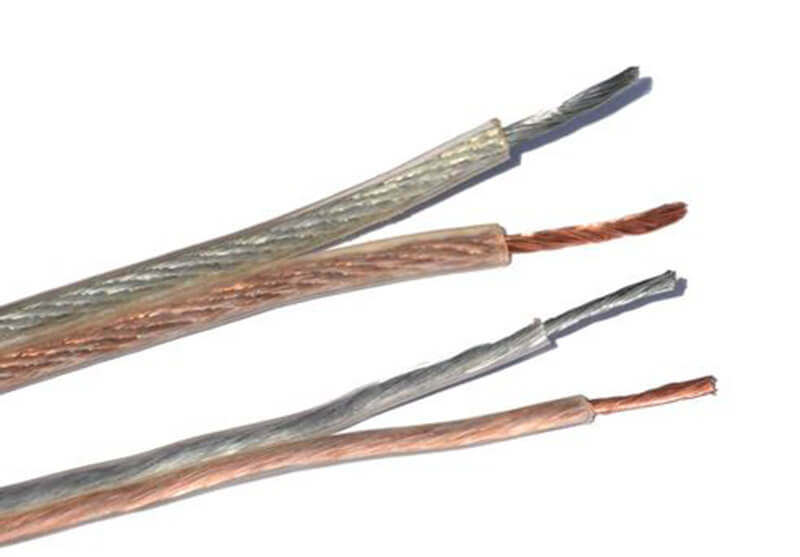


It’s very common to not know what you’re getting for your money and manufacturers can be intentionally misleading.
4 gauge speaker wire professional#
Therefore, to avoid causing a fire, it is necessary to contact a professional when preparing for in-wall wiring.TIP: These days if a roll of speaker wire does not say “copper” or “100% copper” on the packaging, it’s most likely CCA wire. UL approval’s job is to measure how much heat comes from the current going through the wire.ĬL-3-rated wires withstand more voltage, i.e., higher than a usual 8-Ohm speaker needs. Most uses won’t need Class 3, but you should always check with a building expert or local electrician to be sure.ĬL-2 is usually enough for HiFi speakers or audio speaker wires. The certification is mainly for running cables inside your walls and has a Class-3 (CL-3) or Class-2 (CL-2) rating. You will require a UL-certified AWG wire if you intend to run the audio speaker wires through your walls. Here, employing pure copper wires guarantees that the total load output from the amplifier stays closely possible to your speakers’ impedance curve. We highly suggest that the total resistance of your speaker wire should not surpass 5% of your speakers’ lowest impedance. However, it’s easier to handle and works better.Ĭontrarily, 16 or 14 AWG wire is ideal when running wires to 8-Ohm speakers for less than 50 to 60 feet.įor instance, audio speakers and HiFi with 8-ohm nominal impedance benefit from the wires.Īdditionally, it’s less bulky, meaning you can easily maintain and manage its clean audio cabinet. Realistically, only a few people who use home audio run wires far enough to use a 12 gauge.

Generally, a 12 gauge wire is great when using a low impedance like four or six Ohms or longer distances. Secondly, think about what that means for resistance. That’s why it’s crucial to comprehend the concept first. Ironically, the speaker wire is often thicker when the AWG number is lower. What speaker wire gauge do I need? How do I choose? Our topic today centers on AWG speaker wires, but if you see a ‘speaker wire gauge,’ know that it’s still AWG. Others may call it a “Brown & Sharpe wire gauge,” though we assume AWG is simpler to recall.ĪWG is a standard way to measure any solid and round wire.


 0 kommentar(er)
0 kommentar(er)
